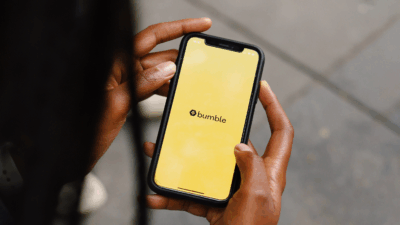Game Over: Can the Video Game Industry Pivot to Streaming?
The gaming industry is headed for a financial crunch, and Microsoft and others have adopted a winner-take-all strategy.

Sign up for smart news, insights, and analysis on the biggest financial stories of the day.
Microsoft managed to get its whopping $69 billion acquisition of gaming studio Activision Blizzard, famous for franchises like Call of Duty and World of Warcraft, over the finish line. But what concerned antitrust regulators was the idea that the biggest deal in the history of video games could give Microsoft a big leg-up in the nascent cloud gaming market — streaming.
You might wonder why the video game industry would pursue streaming at all, especially after the financial woes it’s brought in Hollywood. Games are potentially even more expensive to make than some movies or TV shows, and more expensive for consumers, so what sane gaming company would trade that upfront sale for a monthly subscription?
The answer is that the gaming industry is headed for a financial crunch, and Microsoft and others have adopted a winner-take-all strategy.
Your Local Games Library
Subscriptions to game libraries are not new, but historically that meant access to a back catalog of nostalgic games, not the new hits. But in 2017, Microsoft changed the game.
At the time, Microsoft’s Xbox was being trounced in sales by Sony’s Playstation. In response, Microsoft introduced the Xbox Game Pass, which would not only allow access to a back catalog and new studio releases — like the hugely popular Halo franchise — but also make new games available the day they came out.
“This had never been done before in the high-end games market because of the challenging commercial implications of such a move,” Piers Harding-Rolls, a games industry analyst at Ampere Analysis, told The Daily Upside. “The financial strength of Microsoft has allowed it to pursue this strategy aggressively.”
With Microsoft’s software, hardware, and cloud business generating profits, it can prop up the gaming side.
Cloudy: In gaming, subscriptions and streaming are slightly different but overlapping concepts. A subscription to Game Pass doesn’t necessarily mean games are streamed to your console via the cloud, akin to how Netflix streams shows and movies to your TV or phone, because the processing is often happening on your device. But true cloud gaming, where your game is being run on a server far, far away and streamed onto whatever device you happen to have on you, even if it’s just your phone, is the holy grail for companies like Microsoft and Nvidia.
For years, Microsoft has hoovered up studios with games that become part of Game Pass, which can cost from $10 to $17 per month:
- In 2014, it bought Mojang Studios, the makers of the wildly popular and angular Minecraft for $2.5 billion. Minecraft currently holds the title of best-selling game of all time.
- In 2021, it bought ZeniMax Media, the studio behind Fallout and The Elder Scrolls for $7.5 billion.
Then came the Activision Blockbuster splurge along with Sony’s $3.7 billion purchase last year of games studio Bungie.
How Long Can it Last?
Games are both expensive and time-consuming to make. For AAA games (the gaming industry’s term for big, blockbuster releases) development can take around three to seven years — or longer. Alexandru Voica, former director of global communications at gaming company NetEase, told The Daily Upside it takes an absolute minimum of 100 people to build a AAA game.
But the payoff can be worth it when these blockbuster games typically sell at $60 a pop. Just a month after releasing The Elder Scrolls V: Skyrim in 2011, ZeniMax announced the game had already sold 10 million copies, generating roughly $650 million in revenue. Skyrim eventually went on to sell roughly 60 million units.
But when ZeniMax, now under full corporate control of Microsoft, released its latest opus Starfield in September, the game debuted day-and-date on Xbox Games Pass, making its value proposition far more nebulous. It’s the video game equivalent of Warner Bros. releasing its latest blockbusters on HBOMax, undermining potential box office revenue in order to satiate — or gin up even more — subscription customers. So why go through all that expense and labor just to bundle it with other games at a monthly rate of much less than half the price? Voica believes the industry shifted when video games started competing with everything else vying for our attention.
“What has happened in the last 10 years, and especially in the last five years, and definitely accelerated during the pandemic, was this idea that social media and internet has moved towards entertainment, and then entertainment towards tech,” said Voica. “That has had profound effects on the gaming industry, because they no longer have to compete with each other like they used to. But they have to compete with Netflix and they have to compete with Amazon Prime and they have to compete with TikTok and Instagram.”
The goal is no longer to just sell you a game, he said, but rather to keep you in the game as long as possible — it’s the gaming industry’s attention economy play. Karol Severin, senior analyst at MIDiA research, told The Daily Upside that for companies like Microsoft, this approach goes beyond their individual gaming business.
“The engagement part is important for ‘ecosystem companies’ such as Microsoft, Apple, Amazon etc. There is a whole lot of upside beyond games for these companies (e.g. cloud revenue, advertising, e-commerce, hardware sales),” Severin said.
Once you’re in, you’re in: For the newer games, the opportunity for revenue doesn’t stop at the initial purchase. In-game purchases are becoming a bigger part of the experience, a model for which battle-royal sensation Fortnite paved the way — selling extra content.
“This means it is not just a case of replacing the retail price of a game with the subscription revenue,” Ampere’s Harding-Rolls said. “Gaining a ready-made audience of tens of millions from a subscription service and monetising that audience in-game is an increasingly effective strategy.”
This new model isn’t without its pitfalls. In 2017, Bungie released a game called Destiny 2, a free-to-play online multiplayer game that leaned on in-game purchase potential. While the game was part of what made Bungie so attractive to Sony, the game’s concurrent player count dropped to record lows last month following layoffs. If players get bored of a game they paid $60 for and stop playing, the gamemaker already has its money. For games like Destiny 2, it can be a death knell for a model depending on recurring revenue.
Funding-ogeddon
The games industry enjoyed a huge injection of capital following the pandemic, as startup investors were bowled over by lockdown-era smash-hit Animal Crossing. VC funding peaked at $5.9 billion in the middle of 2022, according to data from Pitchbook, but that slumped to $700 million by the third quarter of 2023. This year has seen mass layoffs, and Voica said studios that were fueled by VC cash during the immediate post-pandemic high will soon find themselves at the end of their runway.
“There isn’t enough revenue to go around for the amount of developers that are building games right now,” he said.
The emphasis is now squarely on profitability, but it’s not all grim news for the industry. “While this does mean that funding is more difficult for developers to find than it once used to be, there is still a lot of money out there. Good games with solid business models will continue to get funded and made,” said Severin.
Nevertheless Voica and Harding-Rolls said they see many smaller companies getting snuffed out by the funding downturn — or they may look to get acquired to finish the games they’ve already poured years into completing.
“Consolidation has been ongoing in the games sector for many years driven, primarily, by how incredibly competitive it is. I think we’ll continue to see consolidation but driven more by survival for some companies,” Harding-Rolls said. “Valuations will drop off from the high points we saw in 2021 and 2022.”
This is, of course, music to the ears of large platforms like Microsoft. It’s a wildly expensive strategy, but it could well pay off. Michael Pachter, an analyst at Wedbush Securities, told The Daily Upside that Microsoft is already poised to take full advantage of the post-apocalyptic gaming landscape. “Microsoft has done a good enough job in establishing a first-mover advantage that competing with Microsoft Game Pass would be like competing with Facebook,” he said.
Somewhere out there, FTC Chair Lina Khan’s spidey senses are going haywire…
Brian Boyle contributed to this report.











